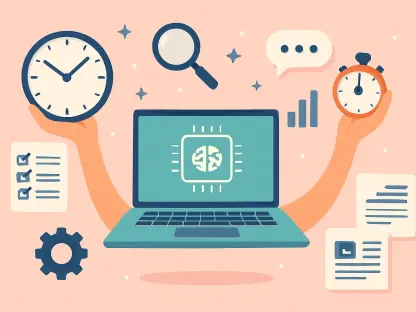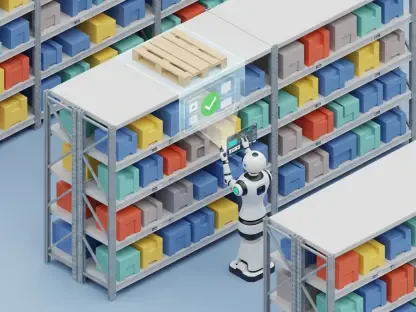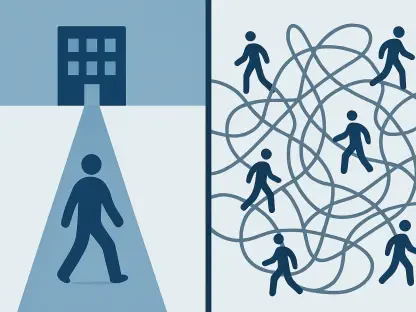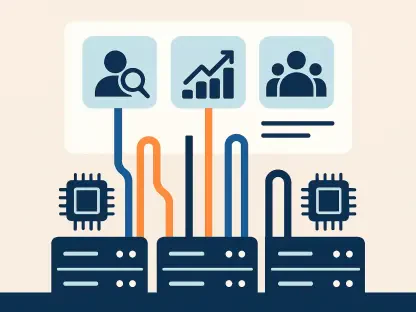The landscape of software development has been undergoing a significant transformation with the advent of AI agents, which have revolutionized the way developers and teams approach the entire lifecycle of software creation. These digital coworkers have not only enhanced the efficiency and speed of the development process but have also introduced a new paradigm that prioritizes collaboration and precision across various stages. With AI agents integrating into every aspect, from coding to deployment, the traditional development framework is evolving into a dynamic environment where human oversight and innovation are paramount. This shift to AI-driven development is not just a trend but a fundamental change, posing a crucial question: Are AI agents reshaping software development in a way that’s enduring and unparalleled?
AI Agents in Code Generation and Workflow Orchestration
AI agents have transcended traditional roles in software development, evolving from being mere helpers in code writing to becoming integral components in orchestrating complex workflows. Their capabilities extend beyond automation, enabling developers to streamline processes by generating code, simulating various business outcomes, and ensuring compliance with regulations. This transformation allows software specialists to allocate more time and resources toward innovative solutions and the broader project vision. By automating repetitive tasks and facilitating real-time collaboration among team members, AI agents enhance productivity and reduce development timelines, ultimately leading to more efficient project delivery.
The role of AI-native orchestration engines in redefining enterprise software delivery is particularly noteworthy. These engines integrate multi-agent workflows and adopt goal-driven development paradigms, which are essential in modern complex software environments. Instead of focusing solely on task completion, AI orchestration systems center around achieving specific business goals. This approach reduces inefficiencies by aligning technical execution with business strategies seamlessly. By defining desired outcomes early in the development process, AI agents can autonomously manage tasks like generating user stories, crafting code, and conducting tests, all while adhering to enterprise governance protocols. The result is a cohesive framework that aligns stakeholder interests with technical requirements, offering a structured and coherent project development process.
Redefining Software Development Through Goal-First Approaches
The introduction of goal-first strategies facilitated by AI agents marks a significant shift from conventional task-based methodologies in software development. This transformative approach focuses on defining business objectives from the onset, allowing AI agents to navigate the development lifecycle with a clear target. By prioritizing outcomes over tasks, AI agents streamline the development process, reduce friction between different stages, and ensure that business strategies are intricately linked with technical execution. This alignment enhances both the quality and speed of software delivery, providing tangible benefits to organizations seeking competitive advantages in their respective markets.
An exemplary model in this evolution is Ascendion’s AAVA+ platform, designed around specialized, autonomous AI agents involved in every role within the software development lifecycle. By connecting more than 80 DevOps tools, it creates an “open kitchen model” that delivers transparency and comprehensive visibility into the entire process. This transparency ensures that all stakeholders have real-time access to project developments and potential issues, facilitating timely interventions and informed decision-making. Such systems underscore the transformative impact of AI agents, illustrating the shift toward integrated and intelligent orchestration that optimizes resources and facilitates seamless development practices.
The Future of AI-Driven Software Development
AI agents have evolved from being simple assistants in software development to playing pivotal roles in orchestrating intricate workflows and processes. Previously confined to tasks like code generation, they now significantly streamline processes, simulate business outcomes, and ensure regulatory compliance. This shift frees software professionals to focus more on innovation and higher-level project goals. By automating repetitive tasks and fostering real-time collaboration, AI agents boost productivity and cut development timelines, leading to more efficient project completion.
Notably, AI-driven orchestration engines are reshaping enterprise software delivery by integrating complex multi-agent workflows and adopting goal-driven development models. Rather than merely concentrating on task fulfillment, these systems emphasize achieving business objectives, thereby minimizing inefficiencies. They expertly align technical actions with business strategies, ensuring outcomes are defined early. This enables agents to autonomously manage aspects like generating user stories, coding, and testing within governance frameworks, resulting in a streamlined and cohesive development framework.









